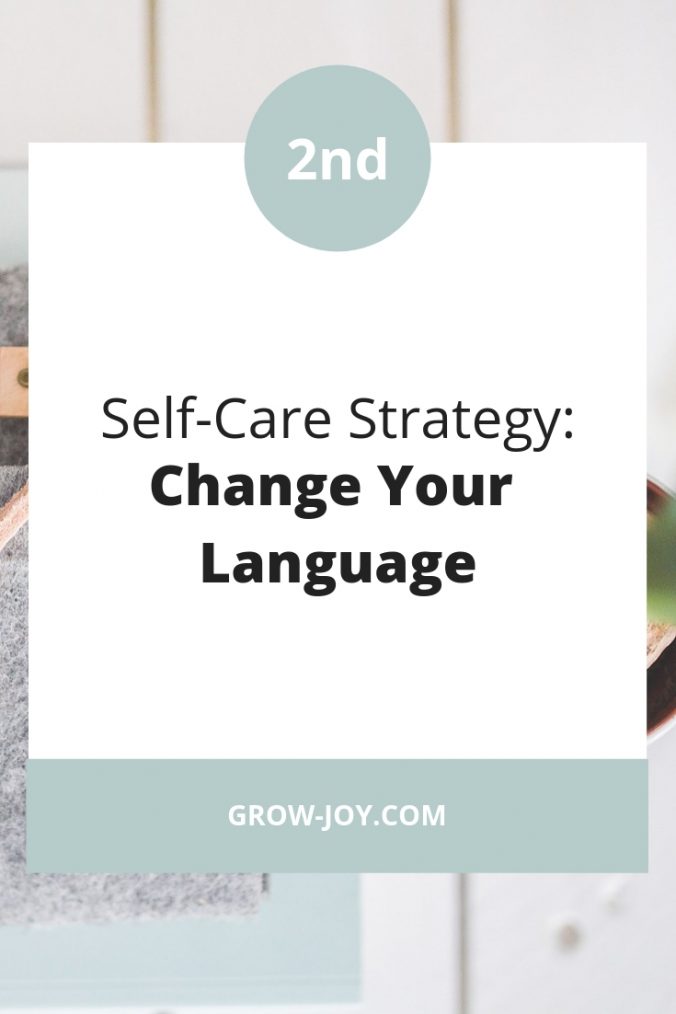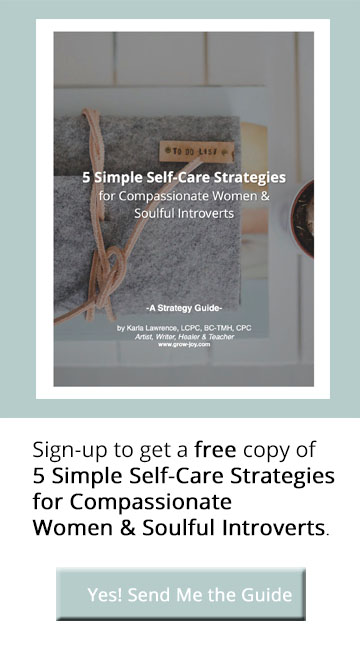Do you ever feel like you have internal sound-track playing inside of your head? A voice that sometimes builds you up, but often feels like it’s tearing you down instead? This little voice is a chameleon. Sometimes it may sound like you. At other it may sound like your parents, relatives, friends or some other people you’ve met throughout your life. This voice is known by many names, but internal critic is the most common. I like to call her “Ms. Critic.”
In getting to know Ms. Critic and helping former clients get to know theirs, I’ve learned some things that may surprise you.
I believe that Ms. Critic’s true intention is to keep us safe.
I believe she wants to keep us from experiencing the pain of failure or rejection. To really explore this idea, I invite you to take a moment to reflect on your own internal critic and the message(s) you often hear. I imagine they might be variations of the following:
- “You can’t do …”
- “You’re not smart/pretty/handsome enough to…”
- “That person doesn’t want/like/need you to…”
- “You’re not enough.”
If you’re anything like me, you probably stay away from whatever the person, place, or thing is that Ms. Critic warned you about. In essence, what she’s saying is “Stop!” “It’s not safe out there.” “You’ll get hurt.” In hurting you, I believe Ms. Critic thinks she’s really helping you. She’s keeping you safe and in a space that’s familiar to you (and her), even if it’s not what you want or need anymore.
Beginning to understand Ms. Critic’s true intentions is only the first step. We still need to address the pain and missed opportunities caused by her words.
Learning to change your language is a great strategy to use if you struggle with feelings of self-doubt and insecurity as a result of negative self-talk. There are only 3 steps, and with a little practice Ms. Critic (or whatever you wish to call him/her/it) will begin to lose her grip on you and have less influence over your choices. The goal of this strategy is to help you change your self-talk instead vs. getting Ms. Critic to just go away. Remember, she really wants to keep you safe, but doesn’t know how to do it without hurting you.
To practice this strategy, just do the following steps:
- Increase Your Awareness— Recall a recent experience where you were especially critical towards yourself. What did your internal critic say? How did that make you feel?
- Replace— Now, think about what you would say to your best friend if they came to you saying those same negative things about themselves. How would you support and encourage them?
- Practice— Finally, practice saying to yourself what you would say to your best friend.
That’s it!
Now, I know it’s easier said than done, since if you’re anything like me, your internal critic has been around a long time. That’s okay. Remember this is simply practice. It always takes time for us to experience change when we’ve been doing something the same way for a long time.
Nurture Tip:
I encourage you to practice patience and be really gentle with yourself. Give yourself permission to create a judgement-free zone as you begin to explore this strategy.
Did you find this strategy helpful? If so I would love to hear about it in the comments section below.
Thanks so much for stopping by today!
Wishing you more peace than your heart can hold.
Creatively,
![]()
P.S. Did you find this strategy helpful? If so, I invite you back to the blog, as I’ll be sharing 3 more of my favorite simple self-care strategies over the next few weeks. If you missed the first strategy, you can find it here.




